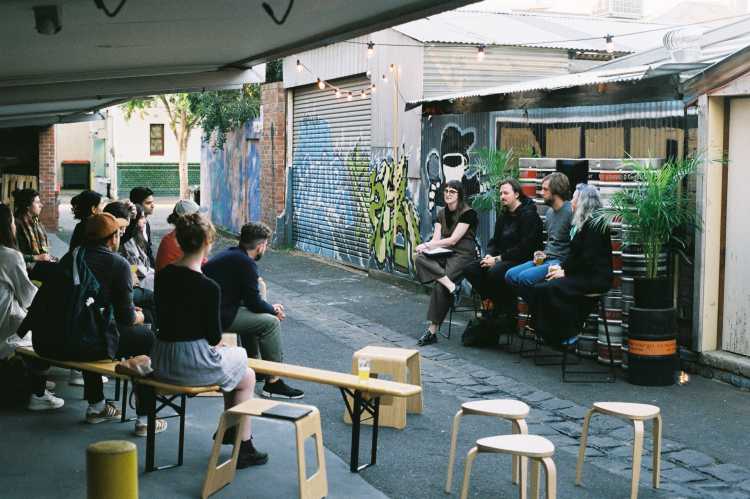
Update.Design: Melbourne Design Week 2021
Location:
Melbourne, AUS
Date:
14•04•22
Source:
Studio TunTun
Section:
Event ReflectionNews
Author[s]:
- Dalton Bruyns
- Katie Fridman
With video calls the new vogue for working, home offices fashioned hastily and our local stores brimming with people, we’ve entered a new dichotomy between local and global — one that creates new tensions between our level of participation online, physically, locally, interstate and internationally.
As part of Melbourne Design Week 2021 (one of Victoria’s few cultural events that emerged intact through the first year of the pandemic) Studio TunTun sat down with Dan Rule [Perimeter Books], Bridgette Engeler [Swinburne University], and Nic Sandery [Molly Rose Brewing] to talk business in a Global/Local world.
Work-from-home orders, curfews, restricted movement, and the near total shutdown of retail, hospitality and entertainment dramatically changed how we could access and experience the necessities of life. In some ways, despite 5km travel limitations, we were more globally connected than ever, easily meeting colleagues from across the globe. A stark contrast then, with the rediscovery of local areas and culture. Residents were pushed towards their local high street, re-discovering their own backstreets, and finding hidden local secrets — which kept many businesses afloat during the first year of the pandemic.
Here’s a few things we learnt from a night of rich discussion, a year into the pandemic.
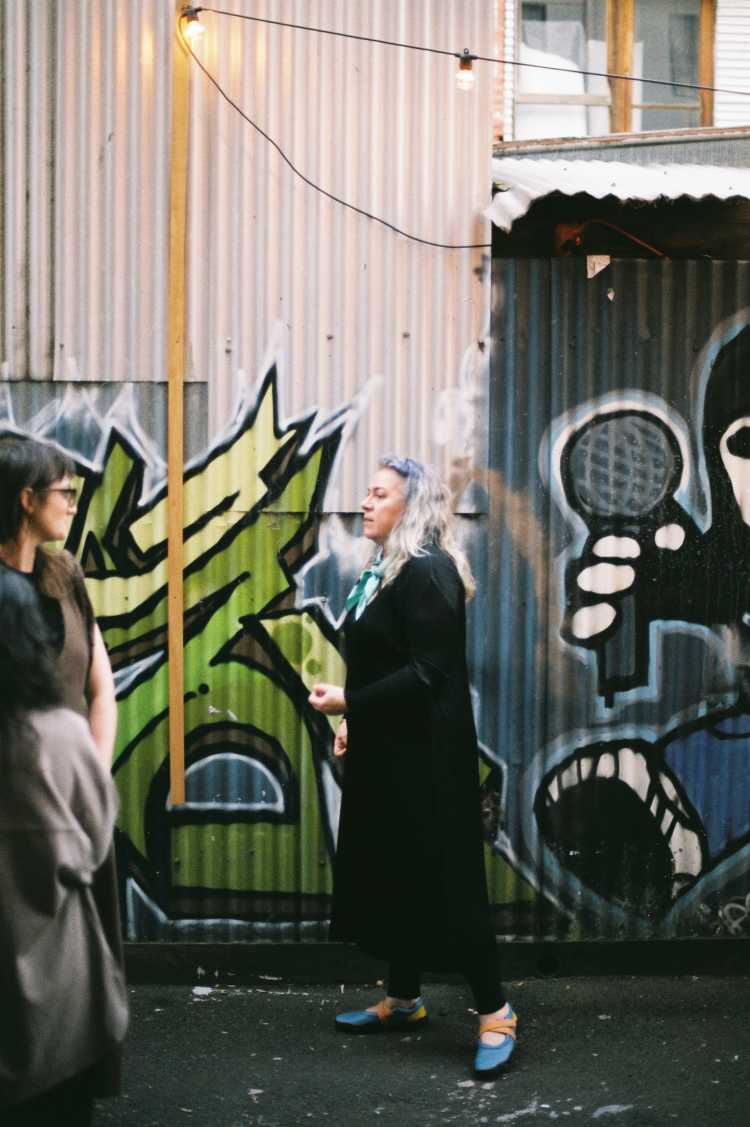
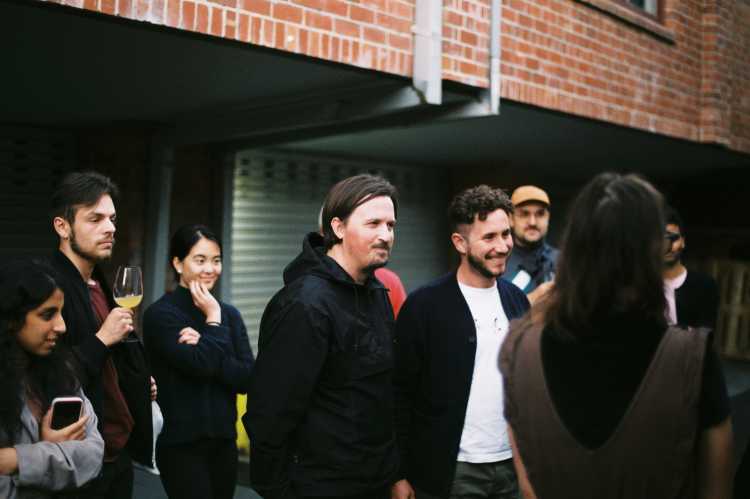
Change can be done overnight, when it’s a need not a desire.
As Bridgette frequently noted, “businesses must be able to embrace uncertainty, envisioning possible, and most importantly, preferred futures.” Through uncertainty, Molly Rose and Perimeter found that the best parts of their business were revealed. Both owners had the opportunity to get back to working the ‘coal face’ of their business, fostering a deeper understanding of their customers, as well as how to shift and innovate.
Like many others, Dan and Nic found their business required a swift and sharp pivot in the face of a new reality. In order to get back to basics and connect with their customers, Perimeter Books and Molly Rose rallied at opposite ends of a global / local spectrum. For many small to medium businesses, shifting structures or changing models is a matter of survival. In order to hold on, the business is pushed to innovate on the fly with what they have around them.
In contrast, the corporate world takes years if not decades to shift, change and adapt to new paradigms in technology, culture and realities. But they are very good at talking about change, highlighting their unique abilities to innovate and lead the industry. Yet as Bridgette so pointedly articulated
“ask a single change manager to work a day in a small business, they’ll have done more innovation than their entire career in a day”.
Online Presence doesn’t necessarily mean an increase in business.
With retail stores closed, Perimeter moved to a “99% online” model, making the most of social media, particularly Instagram, where their creative customers willed away lockdown boredom. Increased activity on the part of business and audience alike meant business thrived, with their instagram following growing to 40,000 globally. The team quickly learnt however, that online interactions don't always translate to engaged customers. Those most likely to comment on their “need” for a new release were few and far between in the order records.
Perimeter found their international audience more engaged than ever before, shifting from local shipping to overseas customers hunting books that their local stores had run out of. Demographics slowly reverted once lockdowns eased overseas and in Melbourne with a greater return to domestic customers — highlighting the fluctuation experienced by different communities.
This was notably different to Molly Rose who used their online presence to expand their experience offering, not to drive new business but provide a richer, deeper connection with locals who could collect their kits throughout the week
In a time of transition, uncertainty, and community spirit, accepting the unknown while keeping the intent and vision of a business solid, brought new connections, skills, and flexibility to two businesses, both engaged in global dialogues while supporting vibrant local communities.
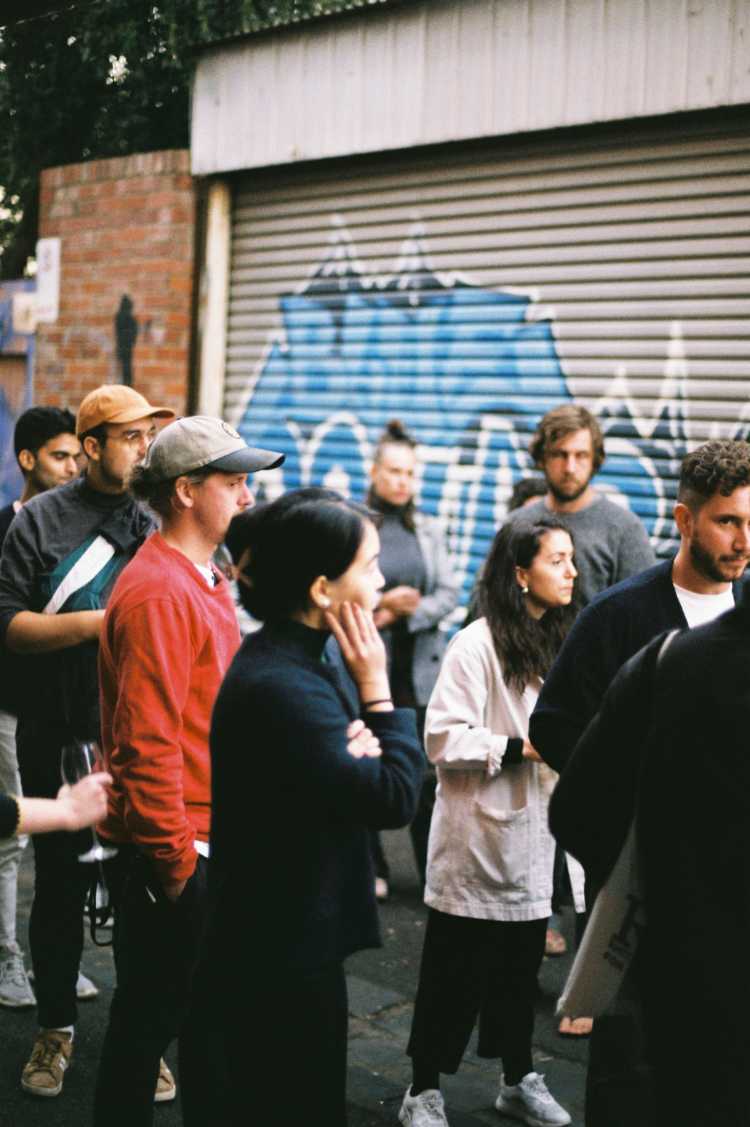
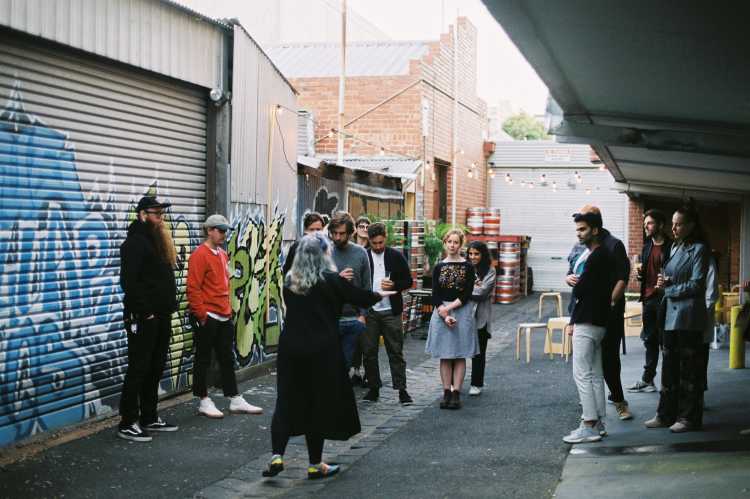
Being local translates to sustainable models of participation and partnerships.
Molly Rose got to know their neighbours like never before, as they became a favoured pit stop in the daily exercise routes of Collingwood residents. In addition to offering products through digital means such as a Virtual Guided beer tasting, experimentation occurred in concrete spaces too. New business partnerships flourished, including a local street market, and collaborations with local chefs and restaurants to host outdoor events.
This reflection inwards and then outwards brought together different communities under one roof, forming new bonds that strengthened the Collingwood, Abbotsford and Fitzroy communities. These connections drove participation in events, partnerships and sharing which allowed Molly Rose to weather the ups and downs of the pandemic — coming out stronger on the other side.
Tools are just tools, basics mattered more than the next, big thing.
What mattered most to everyone in the first 12 months of the pandemic was that basics mattered. No fancy new products or services could sway customers and peers to engage — it was the basics, the raw foundation of each business that customers relied on. Perimeter became a bookstore first and publisher second once again, whilst Molly Rose focussed on beers to be enjoyed at home and out of a home keg.
This even rang true in the upper echelons of corporate Australia as businesses halted projects, wrapped up those in progress, and did the bare minimum to stay alive. This focus to stay afloat fed a stronger desire to connect with clients and customers, learning and emphasising as the true lows of pandemic arrived in the form of long term lockdowns.
This move back to basics shifted the value of many goods and services, elevating those that were essential and knocking back those that were considered less so. In the case of Perimeter and Molly Rose, their core products became more sought after as the pandemic progressed showing that basics build a business.

Upskilling, learning and self reflection were critical to survive.
Lastly, the trio highlighted their shift to rapid re-skilling within their workforce — from training front of house staff in the brewery how to brew beer, repair equipment and become an all rounder to the business, to a shift in how they run the bookstore — everyone saw a large shift in the needs of the worker and identified that learning was key to building a sustainable business throughout the pandemic.
The requirement to learn and self-reflect came from a range of areas but it is a pathway forward to ensure workflows change, innovation is maintained and staff are equipped to deal with the changing nature of work as it shifts, ebbs and flows from ups and downs. As Bridgette mentioned, this became a way to engage younger staff in big business whilst helping a lot of businesses retain talent in a time of uncertainty.
Overall, the general mood, reflection and perspectives shared pointed towards a more locally connected community with a global network to pull knowledge from and ask for assistance when needed. Everyone saw the pandemic as an opportunity to reevaluate their directions, goals and ways of working. What’s remained in place, came from a place of survival but has seen a marked improvement for everyone, as communities become more sustainable and a place for positive exchange.